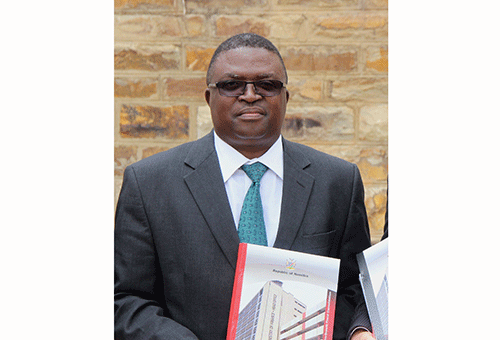Accounting continues to be a thorn in the flesh of most local authorities that are seemingly unable to account for public resources under their care, recently submitted audit reports show.
Three entities – Outapi, Omuthiya and Karibib town councils – were slapped with a disclaimer and adverse audit opinions by auditor general Junias Kandjeke.
For years, Kandjeke has had run-ins with most if not all-local authorities due to an avalanche of irregularities – either municipalities or regional councils, almost in equal measure.
Outapi, for instance, was given disclaimer audit opinions for two consecutive years – 2019 and 2020.
“I have not been able to obtain sufficient appropriate audit evidence to provide for an audit opinion,” Kandjeke stated.
All reports were compiled in February and tabled in the National Assembly for scrutiny earlier this month.
In 2019, the auditors could not observe the counting of physical inventories stated at N$438 486 in the financial statements.
Additionally, the town council did not disclose inventories relating to erven, which were available for sale at the end of that financial year.
“Thus, the auditors were unable to obtain sufficient appropriate audit evidence to satisfy themselves as to the existence, completeness and valuation of the inventory quantities by alternative audit procedures,” Kandjeke said.
Kandjeke’s men also detected unrepresented payments amounting to N$2.2 million.
That year, the council also had undetermined land that had not been valued or disclosed in the financial statements as investment properties in terms of its accounting policy of measuring investment properties at a fair value model.
The following year, the northern town could not account for N$3.1 million after a difference between the town council’s capital reserve fund, contribution government fund, Build Together fund and Shack Dweller housing fund was noted.
“The credit control, debt collection policy and procedures state that provision for doubtful debts or bad debts will be provided for in the balance sheet for debts that are +150 days old in the debtor’s age analysis. The provision policy is not in line with the generally accepted policy for the local authorities of 90 days and above – and it is not in line with the 2019 provision policy of 90 days and above. Thus, the provision for doubtful debts recognised in the financial statements appears to be understated by N$5 million, which results in an overstatement of account receivables with the same amount,” Kandjeke said.
Omuthiya
Two hundred and ten kilometres from Outapi lies Omuthiya, a town also at sixes and sevens over accounting.
In 2020, Kandjeke also gave that council a disclaimer audit opinion.
The council has property, plant and equipment valued at N$93.1 million.
“The fixed asset register does not classify the assets per the class of assets but as per the type of financing used to purchase those assets. In addition, the assets are not tagged so that they are easily identifiable, thus the auditors could not trace the assets physically to verify from the floor to the asset register. There are no alternative procedures that auditors could perform to verify the completeness, existence and valuation of plant, property and equipment.
Karibib
Meanwhile, the Karibib Town Council was one of Kandjeke’s ‘problem children’.
Kandjeke gave the council an adverse audit opinion in 2021, the worst there is.
“The financial statements do not present fairly the financial position of Karibib Town Council as at 30 June 2021,” Kandjeke is quoted in the report.
“The auditors noted a difference of N$301 186 (2020: N$2 311 549) between the sale of goods and services in the statement cash flow N$16 268 065 (2020: N$15 500 189) and services charged per note 3, N$16 569 251 (N$13 188 649). Council is recommended to ensure that amounts in the statement of cash flow agree to the notes,” he said.
More so, it was also noted that unsold erven, valued at N$195 million was recorded under land, which should have been disclosed in the council’s inventory as by IPSAS 12.11, which states that inventories encompass goods purchased and held for resale, including land and other property held for sale,” the State’s chief auditor said.
“There were differences of N$526 322 on the bank reconciliation between the cash book balance on 30 June of N$2.1 million and the financial statements balance of N$1.5 million. Council is recommended to ensure the bank reconciliation is done correctly,” he recommended.
The auditors were equally unable to ascertain whether the N$1.7 million was actually for erven sold for the period under review or whether it relates to monthly payments for erven sold in the past, as there were no supporting documents.
In addition, a difference of N$4.1 million for the housing fund between the financial statements of N$4.6 million and note 12 of N$537 050 was noted.
- emumbuu@nepc.com.na


